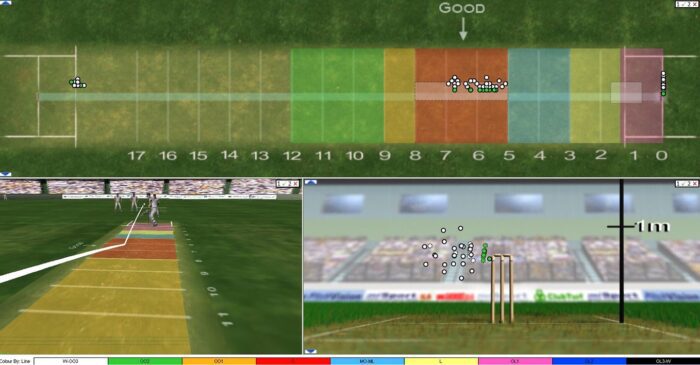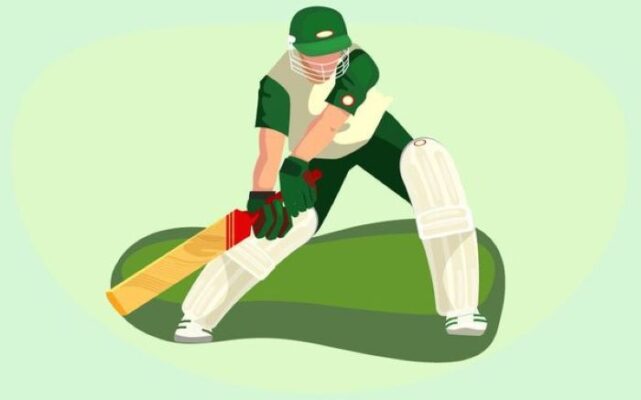Cricket is one of the most popular sports globally, with billions of fans. As the game continues to grow, so does the need for insightful cricket analysis. Cricket analysts provide expert commentary and analysis on matches, players, tactics and statistics. They help viewers understand and enjoy the game better. In this article we talk about How to Become a Cricket Analyst-Career Path and Tips.
If you love cricket and want to turn your passion into a career, becoming a cricket analyst may be a great path for you. This article will explore how to become a cricket analyst, the career path, required skills and tips to succeed.
Career Path to Become a Cricket Analyst

Here are the typical steps to becoming a cricket analyst:
- Play Cricket Extensively
First, you need to have strong cricket experience yourself. Play the sport extensively, whether locally or at higher competitive levels. This builds your fundamental knowledge of tactics, techniques, roles of players etc. Some analysts have played professionally or internationally.
- Understand Scoring, Statistics and Analytics
Learn how to score a cricket match thoroughly. Master statistics like averages, strike rates, economy rates etc. Develop skills in crunching cricket numbers and analytics using tools like Hawkeye, WinViz and CricViz. This helps analyze performances based on data.
- Watch as Much Cricket as Possible
Watch domestic and international cricket voraciously across formats – Test cricket, ODIs and T20s. Understand nuances between eras, conditions, opposition etc. Best analysts have encyclopedic cricket knowledge honed from years of observation.
- Start Commentating and Building Portfolio
Start commentating on local/club games to hone your presentation abilities. Create a portfolio showcasing your written/video analysis on players, matches, performance trends etc. Build cricket connections. Getting opportunities with media outlets will be easier with proven analysis skills.
- Consider Getting a Journalism or Broadcasting Degree
Degrees like journalism, sports journalism or broadcasting & media can help broaden your skillset. You learn research, communication, production techniques etc. Useful electives include sports reporting, data analysis, statistics etc. This formal education adds credentials.
- Apply for Cricket Analyst Roles
Once you have the cricket expertise, analysis skills and portfolio – start applying for cricket analyst roles. Television channels and digital/print media outlets regularly need analysts for programming, commentary panels, writing columns etc. It may begin as freelancing but can convert into full-time positions.
Skills Needed to be a Cricket Analyst
Here are some of the key skills needed for the job:
- Extensive cricket knowledge gained from playing and watching
- Ability to insightfully analyze matches, player performances, techniques and statistics
- Strong presentation skills to articulate analysis clearly and engagingly for audiences
- Research skills to prepare background information for commentary
- Passion for the sport to motivate and inform your analysis
- Up-to-date knowledge on latest cricket rules, equipment, playing conditions etc.
- Data analysis skills using tools like Hawkeye, WinViz, Cricmetrics etc.
Day in the Life of a Cricket Analyst
A cricket analyst has a dynamic job fueled by their passion for cricket. Here’s what a typical workday may look like:
- Research teams, players, form, conditions and statistics pre-match to identify talking points
- Discuss potential match narratives, predictions with fellow broadcasters
- Articulate pre-game analysis clearly on air assessing team combinations, keys, tactics etc.
- Commentate over match play describing action, analyzing events using stats and providing insights
- Highlight in-game trends, momentum shifts, strategy changes and their implications
- Conduct post-match analysis on performances, turning points and learnings on-air or in writing
- Create in-depth player/team report cards with match statistics to quantify analysis
- Brainstorm fresh content ideas with producers for upcoming programming/columns
Tips to Succeed as a Cricket Analyst
If you want to establish a successful career as cricket analyst, here are some top tips:
- Never Stop Learning: Follow domestic and international cricket extensively. Constantly build your knowledgebase. Stay on top of new players, coaches, tactics and trends shaping the sport.
- Watch Games Closely: Don’t just watch cricket casually. Analyze matches with an analyst’s lens – break down factors influencing performances, strategy effectiveness, selection implications etc.
- Quantify Insights: Back qualitative assertions with stats and analytics. Numbers add credibility and clarity to judgments on matches, players etc.
- Find Your Niche: Develop an expertise in certain aspects – data analysis, conditions-based performance, T20 franchises etc. Being known for sharp insights in niche areas helps build your personal brand.
- Build On-Air Experience: Start commentating on local games if needed to gain reps articulating analysis verbally. On-air skills are vital for TV and gaining comfort early is key.
- Market Yourself: Create an online portfolio of your written/video analysis. Be active on social media showcasing your analyst credentials. Connect with media professionals and producers.
- Stay Confident: Trust your cricket knowledge and ability to dissect the game. Being confident and self-assured goes a long way in analyst credibility.
The world of cricket continues evolving rapidly with fresh teams, leagues and formats. There is always demand for good analysts who can make better sense of changes for fan enjoyment. If you have a keen cricketing mind, strong communication abilities and unrelenting passion – a career as cricket analyst may be tremendously rewarding.
Conclusion
Cricket analysts are professionals who educate, engage and entertain audiences with their commentary and insights. If you dream of turning your cricket expertise into a full-time opportunity, this career can offer an exciting option. Follow the steps in this guide from playing sufficient cricket yourself to building an analyst portfolio even as you learn scoring, statistics and enhance your knowledge. With hard work and persistence, you can carve out a niche as a cricket expert. I sincerely hope you find this “How to Become a Cricket Analyst-Career Path and Tips” article helpful.

John Smith is the lead cricket analyst and writer for CricDen.net. With over 10 years of experience in sports journalism and a Master’s degree in Sports Science, John brings a wealth of knowledge and expertise to his insightful cricket analyses and match predictions. His passion for cricket and commitment to providing accurate, timely information make him a trusted voice in the cricket community. Follow John and CricDen for the latest cricket updates, expert opinions, and in-depth coverage on Instagram @cricden and Facebook @cricden.
